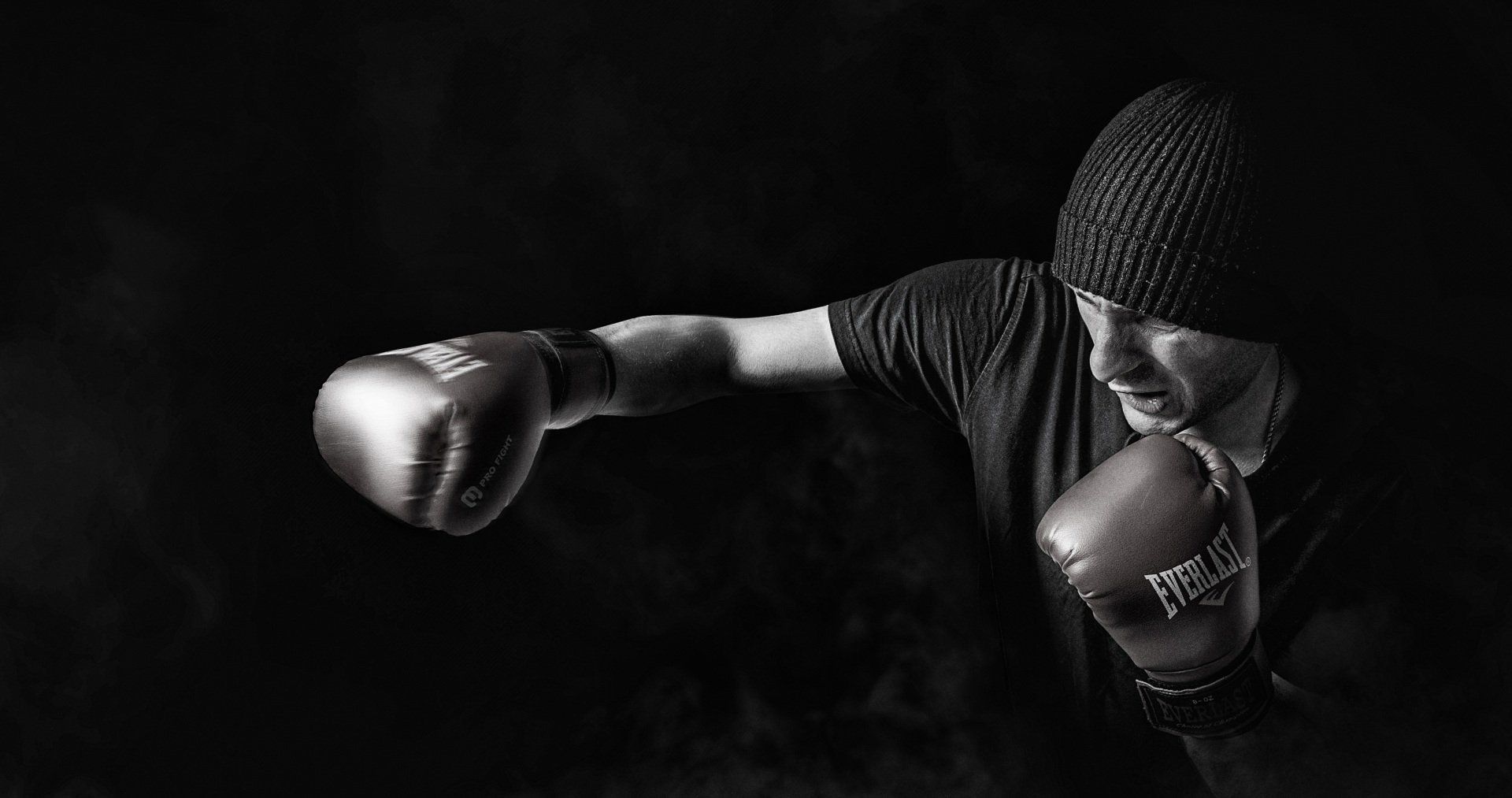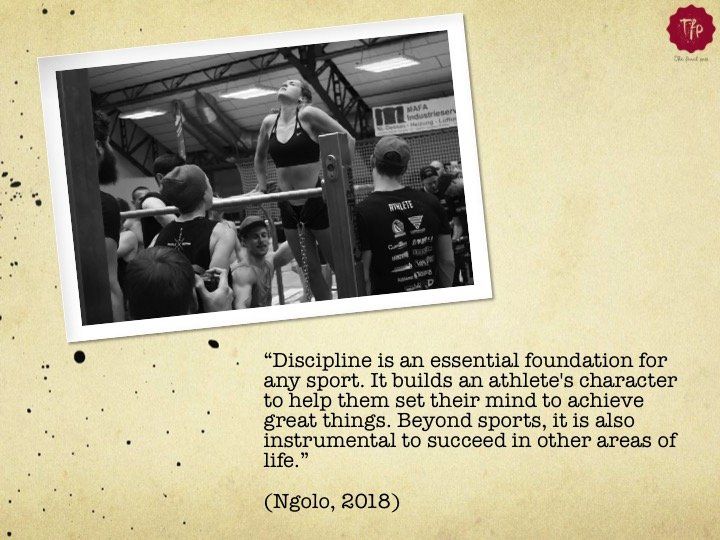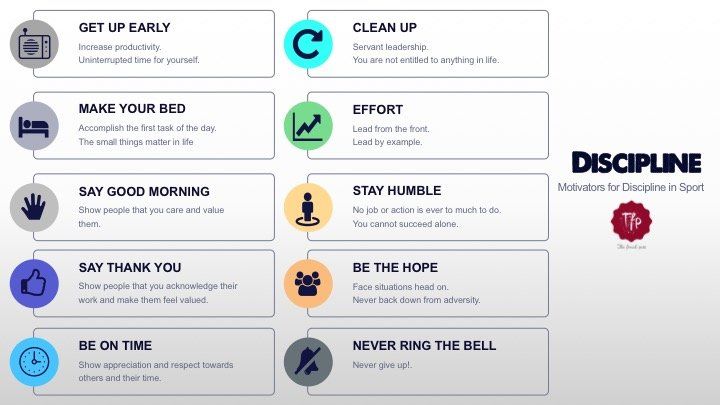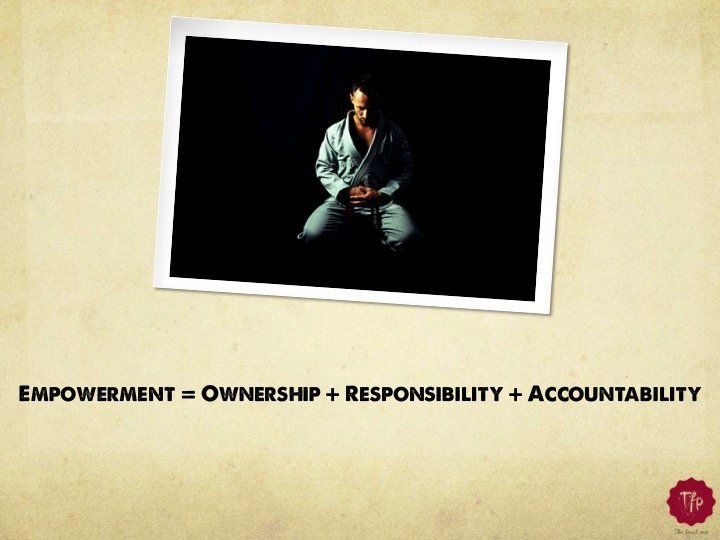Discipline in Sport
Motivators for Discipline in Sport

Why do parents want their children to play sport?
What are the benefits of playing sport?
Why do we play sport?
These are all valid questions with various different answers.
Sport encourages a healthy lifestyle (Balint, 2017).
Sport helps with the promotion and development of non sport specific skills such as life skills, social and moral development, confidence and individual responsibility (Gilbert & Trudel, 2004).
Time management, work ethic and respect for others are also all learning’s and benefits from sport being played, especially in a team environment (Whitley, Hayden, & Gould, 2016).
“Have you ever given thought to why good athletes get suspended or get banned from playing their sports disciplines? When joining a sport disciplinary, the first thing that is required from you as an athlete is self-discipline.”
(“The power of self-discipline in sport,” n.d.)
Self-discipline is one of the major driving forces that parents emphasise when asked on why they encourage their children to play sport (Mirehie, Gibson, Kang, & Bell, 2019).
Our youth sport structures and secondary schools are the environment where we need to mould these young athletes. These are the environments where self-control and character are built within athletes (Orunaboka & Nwachukwu, 2012).
Athletes with character have both the knowledge to know what is right and the courage to act on that knowledge. Character implies not only moral and ethical excellence, but also firmness, resolution, self-discipline and judgement (Docheff, 1998).
These are all characteristics that we want in our future stars.
If we look at the news and the modern world we live in, this is however not the case.
Unfortunately students today are less respectful, less obedient and less willing to live in accordance to the rules we have within our societies. This is rather unfortunate, bearing in mind the goals, and purpose of what sport should be doing within our society (Belsha, 2021; Orunaboka & Nwachukwu, 2012).
Also see: “The importance of sport in our modern day society”
Through the years we have been taught ‘sport builds character’.
Through the building of character sports tick all the boxes that parents are looking for.
This phrase however has been overused and under supported throughout the history of sports.
Has anybody ever stood up and asked: “Where is your proof?”
“Show us the character you are building”.
People do not question the phrase because they truly want to believe it (Docheff, 1998).
The world however has changed.
We live in an age where we need to challenge the norm.
We need to challenge the way we do things.
We need to challenge the way we think.
Gone are the days of: “It has always been done this way.”
So…if we challenge the statement: ‘sport builds character’, what character are we actually building? What are the building blocks that make up this ‘character’ we are building?
“Discipline is an essential foundation for any sport. It builds an athlete's character to help them set their mind to achieve great things. Beyond sports, it is also instrumental to succeed in other areas of life.”
(Ngolo, 2018)
The task to build this ‘character’, to build the self-discipline in athletes, falls squarely on us as coaches.
Coaches of youth sport should broaden their view of a coach’s role to include effective and cognitive consequences, ethical issues, and the goal of developing autonomous learners and leaders of the future.
Discipline is highlighted as one of the roles a coach needs to play (Gilbert & Trudel, 2004).
Let us then define what ‘building character’ is in sport and name definitive self-discipline actions to work on.
Character, as is commitment (drive), is something that is ingrained in human beings. You can not teach it, but you sure can put motivators in place (Pickerel, 2019).

I would like to combine some tangibles from Corne Krige, Springbok Captain Number 46, (“The D-Factor: 5 Habits for more self-discipline - Corné Krige,” n.d.) and Navy Seal Admiral William McRaven (https://www.youtube.com/watch?v=LoKdCqgiSVY, 'Make Your Bed’ by Admiral William H. McRaven speech transcript,” n.d.) with some of my own thoughts on defining what we need to instil in young athletes to ‘build character’, self discipline and be successful.
Not just successful in sport, but also in life.
Get up early.
Getting up early gives you extra time in the day where you are most productive and can have uninterrupted time to yourself.
Make your bed every morning.
You would have accomplished the first task of the day and it will encourage you to do more tasks in the day. It also reinforces that the small things matter in life. If you cannot do the small things right, you cannot do the big things right. It is a sign of self-respect and self-discipline.
Say good morning.
This is to show others that you care and value them. Also for you to stay humble no matter your title or achievements.
Say thank you.
This is to show people that you acknowledge their work, appreciate them and to make them feel valued.
Be on time.
"Early is on time, on time is late and late is unacceptable!" was a phrase coined by the author Eric Jerome Dickey
Being on time shows an appreciation and respect towards others, regardless of their station in life and also towards their time.
Clean up after yourself.
This is a way of servant leadership and you can never expect anybody to clean up after you, you do it yourself.
You are not entitled to anything in life.
It is all about the effort.
Another part of self-discipline is to always give 100% effort and do the extra on and off the field. This includes the physical, mental and spiritual parts of life.
To be a leader you can lead from the front and by example.
Stay humble.
To stay humble is a challenge. Especially when things go well. Staying humble is the easy way to keep a growth mind-set and to keep improving. No job or action is then ever too much to do.
Staying humble will also allow you to ask for help when needed.
If you want to succeed, you cannot do it alone. Respect your management, peers and competitors.
Be the hope for others.
Leading from the front, especially when times are tough, is what counts. Be the hope when everyone else has given up. Sport and life is not always fair. There will be tough times where the situation or people will try to bring you down. Face the situation head on and never back down from adversity.
Do not ever ring the bell.
Never give up!
These 10 points might seem easy to instil, and you would think they come naturally to our young sports men and women.
They don’t!
It is up to us the coaches, and leaders in the sport industry and in education, to instil these motivators within our youth. To make sure that sports build the ‘character’ we talk about. It is up to us to make sure that our sports stars of the future are disciplined, have self-discipline and have all the character to succeed in the future, not just in sport, but also in life.
Empower our stars to take ownership of their lives, to take responsibility for their actions and be accountable for their performances and the lives they live.
Empowerment = Ownership + Responsibility + Accountability


Bibliography
- Balint, L. (2017). The importance sports activities have over the quality of life in the adult population. Journal of Social Science Research, 10(1), 2003–2006. https://doi.org/10.24297/jssr.v10i1.6601
- Belsha, K. (2021). Schools struggling with behavior issues as students return - Chalkbeat. Retrieved December 1, 2021, from https://www.chalkbeat.org/2021/9/27/22691601/student-behavior-stress-trauma-return
- Docheff, D. (1998). Character in Sport and Physical Education—Summation. Journal of Physical Education, Recreation & Dance, 69(2), 24–24. https://doi.org/10.1080/07303084.1998.10605065
- Gilbert, W. D., & Trudel, P. (2004). Role of the Coach: How Model Youth Team Sport Coaches Frame Their Roles. Sport Psychologist, 18(1), 21–43. https://doi.org/10.1123/tsp.18.1.21
- “Make Your Bed” by Admiral William H. McRaven speech transcript. (n.d.). Retrieved November 30, 2021, from https://jamesclear.com/great-speeches/make-your-bed-by-admiral-william-h-mcraven
- Mirehie, M., Gibson, H., Kang, S., & Bell, H. (2019). Parental insights from three elite-level youth sports: implications for family life. World Leisure Journal, 61(2), 98–112. https://doi.org/10.1080/16078055.2018.1550437
- Ngolo, S. (2018). The importance of discipline in sport - The Namibian. Retrieved November 28, 2021, from https://www.namibian.com.na/182785/archive-read/The-importance-of-discipline-in-sport
- Orunaboka, T. T., & Nwachukwu, E. (2012). The role of sports and physical education as a mechanism for control of deviant act among secondary school students in Nigeria. Asian Journal of Management Sciences and Education, 1(1), 21–27.
- Pickerel, J. (2019). How Sports Training & Discipline Impact Professional Success - Aviation Personnel International. Retrieved November 28, 2021, from https://www.apiaviation.com/professional-success-sports-training-discipline/
- The D-Factor: 5 Habits for more self-discipline - Corné Krige. (n.d.). Retrieved November 27, 2021, from https://www.cornekrige.com/the-d-factor-5-habits-for-more-self-discipline/
- The power of self-discipline in sport. (n.d.). Retrieved November 28, 2021, from https://www.gaboroneinternationalschool.co.bw/the-power-of-self-discipline-in-sport
- Whitley, M., Hayden, L., & Gould, D. (2016). Growing up in the Kayamandi Township: II. Sport as a setting for the development and transfer of desirable competencies. International Journal of Sport and Exercise Psychology, 14(4), 1–26.



